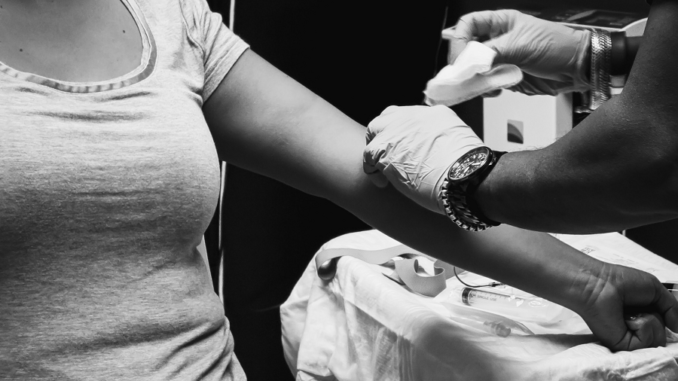
We spoke with Audrius Ščeponavičius, director of the Public Health Department of the Ministry of Healthcare of Lithuania.
We would like to talk with you about vaccinations. My first question is – who can and has the right to be vaccinated in our country?
First of all, it is doctors, nurses and medical personnel. Then – care homes. Residents who live in care homes and the staff who serve these residents. Upon completing the vaccination of these two groups, we are beginning to vaccinate school and preschool staff who have contact with children.
When we finish this group, we start on residents who are 80 years old and above. Then, 75 and over, 65 and over. We will start with the oldest age groups, 80 and older – this queue has been approved. Upon completing vaccinations for these groups, the residents who are part of government services, which should be provided to all citizens, are to be vaccinated. Important professions. When we finish this group, then everyone else under the age of 65 years old can get vaccinated.

Does your information indicate when the rest of the country will be vaccinated? Are we talking about summer, at the end of summer? What is today’s forecast?
Well, our goal is to vaccinate 70% of the population by mid-July. It depends on how much vaccine we get. We already have contracts with companies that produce vaccines. These are AstraZeneca, Pfizer and Moderna. We also have agreements with other companies. There are contracts for 9 million doses. For 70% of the population we need 4 million doses because two doses are used per person. That is, if we want to achieve our goal, we need 4 million doses of vaccine. And now, the delivery of vaccines is still insufficient, but it is increasing every week. At the end of this week, we will already receive the first doses of the AstraZeneca vaccine – the third vaccine that is to reach Lithuania. And we hope that these numbers will increase. And in February, we already have a forecast that we will receive about 60 thousand doses per week, and from March and April we will receive up to 160 thousand doses a week. That is when mass vaccination will begin. The largest vaccination groups we have are people 80 years and older, and by age group. In each age group we have almost 150 thousand inhabitants.
Is it possible to vaccinate those who have had COVID-19 already? And also, will those with antibodies be vaccinated?
Yes, after an illness you cannot be vaccinated for three months after the diagnosis. And after three months, you can already check what kind of immunity, what antibody titer you have, and then you can get vaccinated. If antibodies are found, you can only be vaccinated after 60 days. In general, both after an illness and after the detection of antibodies in the body, vaccination is postponed.
Could just explain to people what this vaccine looks like? What is this procedure? Is this some kind of special heavy procedure? How is the COVID-19 vaccine done? These are the two vaccinations for those vaccines that we now use in the country.
The procedure is very simple. The vaccine, 1 ml of the vaccine, is injected into the muscle of the shoulder, and this is done very quickly – somewhere it was calculated that up to one minute. We are just now working on how people can register for this vaccination. This is also not difficult – you can either call the registry, or register yourself on the Internet, there are websites. The vaccine itself is very simple, and then it is all entered into the electronic health system. And we know how many people are vaccinated every day. Every citizen of Lithuania can also find this information. How many have already been vaccinated, how many men, how many women, how many doctors, how many other groups – this can also be found on the internet.
Do I understand correctly that it is best to consult your doctor about vaccination?
Oh, certainly. The general practitioner knows their patients best. They can advise, whether the vaccination should be done sooner or later. But yes, the main one in this system is the family doctor.
This was an interview with the director of the Public Health Department of the Ministry of Health of Lithuania, Audrius Šceponavičius. You can read and listen to this interview in detail on RUSRADIO LT.

Be the first to comment